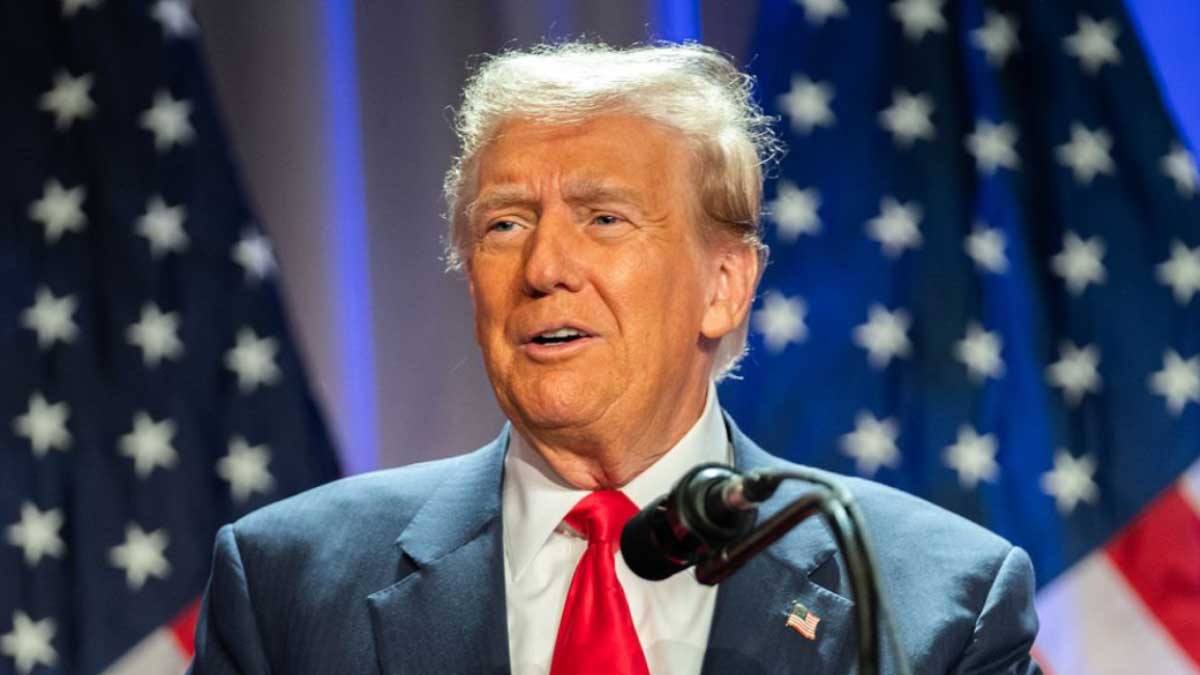- Home
- Billionaires
- Investing Newsletters
- 193CC 1000
- Article Layout 2
- Article Layout 3
- Article Layout 4
- Article Layout 5
- Article Layout 6
- Article Layout 7
- Article Layout 8
- Article Layout 9
- Article Layout 10
- Article Layout 11
- Article Layout 12
- Article Layout 13
- Article Layout 14
- Article Sidebar
- Post Format
- pages
- Archive Layouts
- Post Gallery
- Post Video Background
- Post Review
- Sponsored Post
- Leadership
- Business
- Money
- Small Business
- Innovation
- Shop
Recent Posts
Sheinbaum Clarifies Stance After Trump Claims Border Deal

President-elect Donald Trump ignited international discussion on Wednesday when he claimed that Mexican President Claudia Sheinbaum had agreed to halt migration through Mexico to the United States, effectively sealing the southern border. Trump presented the conversation as a major diplomatic victory, asserting that the agreement would curb illegal immigration and bolster border security. However, Sheinbaum promptly clarified her country’s stance, emphasizing that Mexico’s policies are rooted in cooperation and respect for human rights rather than border closures.
In a series of posts on Truth Social, Trump described his phone call with Sheinbaum as a “wonderful conversation” and declared that the Mexican leader had committed to “stop Migration through Mexico, and into the United States, effectively closing our Southern Border.” He further claimed that the agreement would take effect immediately, boasting that it would “go a long way toward stopping the illegal invasion of the USA.” Trump also suggested that the discussion addressed measures to curb the flow of drugs into the U.S., an issue he has often tied to Mexico, and reiterated his intention to impose a 25% tariff on all Mexican imports unless these issues are resolved.
Shortly after Trump’s statements, Sheinbaum issued a public response on X (formerly Twitter), offering a markedly different account of their discussion. She described the call as “excellent” and outlined Mexico’s proactive strategy to manage migration. Sheinbaum emphasized that Mexico was addressing the issue within its borders, ensuring that large caravans were not reaching the U.S. southern border. She also stressed her country’s commitment to human rights, stating that “Mexico’s position is not to close borders but to build bridges between governments and between peoples.”
Trump’s comments align with his longstanding campaign focus on stringent immigration policies, including mass deportations and heightened border enforcement. During his campaign, Trump often described migration as an “invasion” and vowed to impose severe economic penalties on countries he deemed uncooperative. Earlier this week, he accused Mexico of allowing large caravans of migrants to traverse the country unchecked, describing the situation as “unstoppable” due to what he called an “Open Border” policy. To address the issue, he pledged to implement a 25% tariff on all Mexican and Canadian imports as a first executive order, vowing that the tariffs would remain in place until illegal migration and drug trafficking ceased.
Sheinbaum also addressed Trump’s tariff threats during a press briefing on Tuesday, cautioning that a trade war would harm both nations. She read a letter she had sent to Trump, warning that retaliatory tariffs would escalate tensions and jeopardize shared economic interests. She pointed out that American automakers with operations in Mexico, including General Motors and Ford, would be particularly affected. “One tariff will follow another in response and so on, until we put our common businesses at risk,” she said, questioning the rationale behind such an approach.
The divergence between Trump’s portrayal of the conversation and Sheinbaum’s clarification underscores the complexities of international diplomacy. While Trump framed the discussion as a policy breakthrough, Sheinbaum’s comments reflected a broader strategy of balancing migration management with respect for human rights and maintaining diplomatic cooperation. Her emphasis on collaboration and bridge-building presented a stark contrast to Trump’s more unilateral rhetoric.
As Trump prepares to assume office, his approach to U.S.-Mexico relations is poised to become a critical element of his administration. Whether his claims of an agreement with Sheinbaum result in concrete policy changes or escalate tensions between the two nations remains uncertain. Meanwhile, Sheinbaum’s insistence on fostering dialogue and mutual respect offers a counterpoint to Trump’s more aggressive posture. These conflicting narratives highlight the challenges of navigating migration, trade, and diplomacy in an increasingly interconnected world. The evolving dynamics between the U.S. and Mexico will undoubtedly shape the policy landscape on both sides of the border in the months to come.
Recent Posts
Categories
- 193 Countries Consortium Partner1
- 193cc Digital Assets2
- 5G1
- Aerospace & Defense48
- AI37
- Arts3
- Banking & Insurance11
- Big Data3
- Billionaires962
- Boats & Planes1
- Business332
- Careers13
- Cars & Bikes79
- CEO Network1
- CFO Network17
- CHRO Network1
- CIO Network1
- Cloud10
- CMO Network18
- Commercial Real Estate7
- Consultant1
- Consumer Tech194
- CxO1
- Cybersecurity73
- Dining1
- Diversity, Equity & Inclusion4
- Education7
- Energy8
- Enterprise Tech29
- Events11
- Fintech1
- Food & Drink2
- Franchises1
- Freelance1
- Future Of Work2
- Games149
- GIG1
- Healthcare79
- Hollywood & Entertainment203
- Houses1
- Innovation46
- Investing2
- Investing Newsletters4
- Leadership65
- Lifestyle11
- Manufacturing1
- Markets20
- Media195
- Mobile phone1
- Money13
- Personal Finance2
- Policy569
- Real Estate1
- Research6
- Retail1
- Retirement1
- Small Business1
- SportsMoney42
- Style & Beauty1
- Success Income1
- Taxes2
- Travel10
- Uncategorized12
- Vices1
- Watches & Jewelry2
- world's billionaires931
- Worlds Richest Self-Made Women10
Related Articles
South Korea Plane Crash: A Tragic Loss and Global Mourning
The tragic plane crash at South Korea’s Muan International Airport on Sunday...
By 193cc Agency CouncilDecember 30, 2024H-1B Visa Debate Splits Trump Allies and Silicon Valley
The debate over H-1B visas has once again become a contentious issue,...
By 193cc Agency CouncilDecember 28, 2024Trump Moves $4B Stake in Truth Social Parent, Stock Drops 6%
Donald Trump recently transferred his 57% stake in Trump Media & Technology...
By 193cc Agency CouncilDecember 20, 2024House Rejects Trump-Backed Funding Bill, Shutdown Looms
The U.S. House of Representatives rejected a new government funding bill on...
By 193cc Agency CouncilDecember 20, 2024








Leave a comment